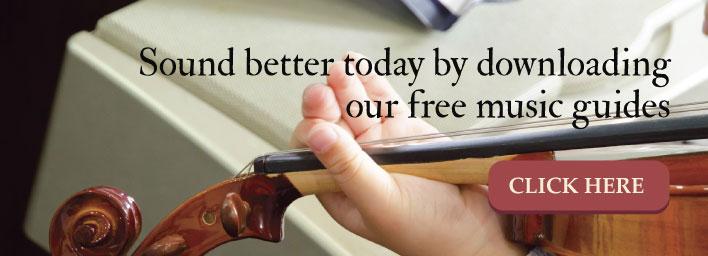5 Tips for Easy Conversation at Music Receptions

Unless you’re a complete extrovert, making casual conversation at music receptions can sometimes feel intimidating – or something you have to survive, at best. Worst case scenario means mingling with strangers makes you nervous, anxious, or even fearful. Believe it or not, making casual conversation is something that improves with practice – just like playing your string instrument.
Music receptions and other pre- or post-concert events, as well as VIP backstage mingling, allows you to meet some of the world’s most celebrated musicians, prospective instructors or mentors, potential sponsors, and donors or other VIPs with opinions – and networks – that matter.
Learning the art of conversation is well worth it for aspiring musicians. Music and performance related social events provide the opportunity to engage in conversations and forge connections that are useful for developing your brand, as well as cultivating positive reviews and feedback needed for your network and to stand out from the competition.
1. Active Listening is an Essential Ingredient for Good Conversationalists
Ironically, talking is not as necessary as you may think to be considered a “good conversationalist” by peers, fans, and sponsors. It turns out that most of us enjoy talking about ourselves when given the opportunity. If you practice active listening, odds are your conversation skills will grow and your reputation for having a personal and human touch will be celebrated by your reception hosts, audience, and fans.
The Center for Creative Leadership says that some of the most important tenets of active listening include:
- Paying attention. Make natural eye contact and focus on what the person is saying, avoiding the urge to tune out or distractedly gaze around the room.
- Withholding judgment. Keep your face in a neutral or positive expression, keeping an open mind as speakers share their experience.
- Reflecting. Mirror or reflect key points. “Oh, you spent three weeks in Bali? I’ve heard wonderful things about it…” and then actively listen to them share their Bali experience.
- Clarifying. Never act like you know about something you don’t, or that you understand something you didn’t hear quite right. Seek clarification by asking questions or being honest about your lack of knowledge in a particular area. This keeps the speaker engaged.
- Sharing. Share your thoughts, perceptions, experiences, or ideas to keep the conversation flowing, or to show you have understanding, insight, and empathy for the other person’s experience.
The good news for musicians who are tired after concerts, or who are introverted by nature, is that active listening doesn’t require nearly as much speaking.
2. Ask Open-Ended Questions
Open-ended questions are the ones that lead to longer, more explanatory answers, as opposed to questions needing only a “yes/no” answer. Ask for a guest list or who the key players are before the event, giving you a chance to learn some important facts about them. This generates better talking points at the reception.
Since you all love music, questions such as, “what are the last concerts you’ve attended,” or “what is the most inspiring concert you’ve ever been to,” are safe, starting bets.
3. Have Some Pre-Fab Lines at the Ready
Along those same lines, it’s helpful to have some memorized phrases to help the conversation along as people share or ask you about things. These include phrases such as:
- Tell me more about…
- How did you get into…
- What’s the best part, or your favorite part, of/about…
- Are you originally from here/there…
- This is my first visit to City X, do you have any recommendations…
4. Feign a Little Enthusiasm if You Have To
Being completely fake and over-the-top enthusiastic won’t get you far, but it’s good to feign some level of interest and enthusiasm if you can. A little outward energy can help spark the conversation. Once they’re on a roll, and you find ways to connect, your enthusiasm will become more genuine.
5. Know How to End the Conversation
You may be surprised that starting the conversation is easy, and the real challenge comes when you’re ready to leave the conversation. There are several ways to extricate yourself graciously from a conversation without feeling awkward.
- Bathroom break – the easiest and most straightforward: It’s been wonderful talking to you if you’ll excuse me, I need to visit the ladies’/men’s room…
- You need to mingle, so others don’t feel left out: I’ve enjoyed meeting you, but I feel compelled to mingle with the other guests…
- There’s someone you promised to connect with: This has been lovely, but I see my Agent/Producer/Manager/Host, and I need to say hello…
- You don’t want to keep them from mingling: What a lovely opportunity to get to know more about you, but I hate to keep you from the other guests…
Don’t let the social scene at music receptions be a source of stress. Perfect your art of conversation, and know that the personalized, face-to-face connections you make there can have exponential career benefits down the road.


